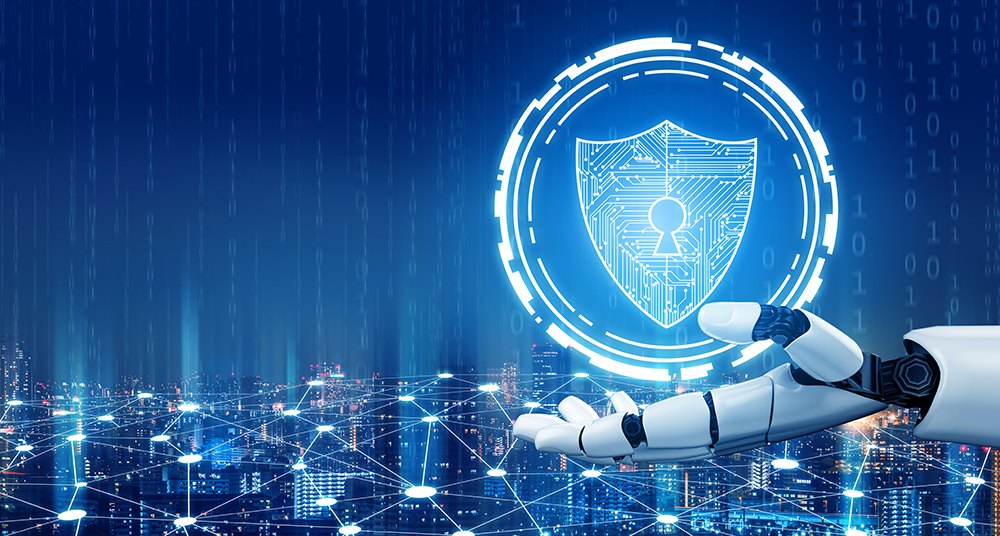
IoT brings the world – and all the good and bad that comes with it – to your fingertips. Machine Learning can protect IoT enabled devices from cybersecurity threats.
As the digital revolution takes hold, many personal and commercial devices are becoming “smart” through internet accessibility. Building an Internet of Things (IoT) network provides countless advantages both for consumers and businesses alike, but it also opens new vulnerabilities. Many of the producers of IoT devices lack experience and knowledge in cybersecurity, even as IoT devices are collecting sensitive personal data with more volume, detail, and frequency than ever before.
What Makes IoT Security Challenging?
Traditional security and privacy methods tend not to perform well on IoT networks. The dynamic nature of IoT connectivity presents a unique set of security-related complexities:
- Heterogeneity: IoT devices come in many shapes and forms, creating a wide range of hardware and software schemes.
- Scale: There are billions of IoT devices already in use.
- Interconnectivity: Networks are accessed anytime, anywhere.
- Proximity: Ad hoc networks may rely on local devices in short-range communications.
- Latency: Sensitive applications like surgical devices, assembly line production, and traffic monitoring require ultra-reliable, low latency communication (URLLC).
- Cost: Most devices need to be low cost and low power.
- Structure: Vulnerability to Distributed Denial of Service (DDoS) attacks increases on a large, self-organized IoT network.
- Dynamic configuration: As devices are continually removed and added, the network reconfiguration must be adaptable.
- Privacy: Consumer and proprietary data must be protected, particularly in healthcare applications.
- Intelligence: For many IoT applications, sophisticated decisions must be made in real-time.
Although many internet access points share several of these pain points, the limitations of IoT devices and the complexity of the environment in which they operate amplify many of these concerns beyond the scope of conventional security capabilities.
What is Machine Learning?
Machine Learning (ML) encompasses many of the modeling techniques associated with artificial intelligence. Using statistics, ML models can predict outcomes from any digital dataset by identifying significant features. Models can be trained on massive, complex datasets; they can also continue to improve automatically, without software updates or supervision. Classic examples of ML applications include processing voice commands, like Siri or Alexa, or searching through images for features, like specific faces or certain animals. Where many text-based search algorithms fail, ML is able to isolate unconventional patterns in pixels and phonemes to find meaning.
How can Machine Learning Improve Cybersecurity?
ML can quickly adapt models with changing parameters, enabling IoT security systems to make real-time adjustments in changing environments. Tech leaders have applied ML to general cybersecurity practices; Google uses ML to protect Android systems, and Apple applies ML to secure your phone with facial recognition. ML has also proven that it can identify malicious code in applications and software.
ML can help both in cases where the type of attack is known and where the type of attack is unknown. For known attacks, ML can predict whether certain events are part of an attack by learning patterns from attack examples. To face daily, widespread attacks like Distributed Denial of Service (DDoS), ML models have been created that can predict DDoS attacks with >99.9% accuracy.
However, some risks are unknown up until the moment they happen. In a so-called “zero-day” attack, a digital system is exploited through a previously unknown vulnerability. The people trying to protect the system have zero days to prepare for or fix the vulnerability. Zero-days are rare, dangerous, and unpredictable. Websites like Zerodium will even offer bounties of up to $2,500,000 to disincentivize hackers from using zero-days maliciously. Cloud-based unsupervised ML techniques can guard against zero-day threats by detecting behavior that is out of the ordinary. ML is a perfect fit for cloud applications spread across many tools and devices – ML systems act quickly to automatically weed out zero-day threats from susceptible users before they break into the main network.
What’s Next?
ML has proven its worth for general cybersecurity applications, and it is well suited to handle many IoT-specific concerns. Given the rapid response times and flexibility of these ML-based systems, they are equipped to balance many vulnerabilities of IoT networks. There is great momentum behind ML research for all kinds of applications, and there are promising proof points that demonstrate the value of ML as an emerging technology.
About the author: Caitlyn Caggia is a content writer for PDF Electric & Supply. She is an experienced systems integrator and solutions architect, and she holds an MS in Electrical and Computer Engineering from Georgia Tech.
Edited by
Ken Briodagh





